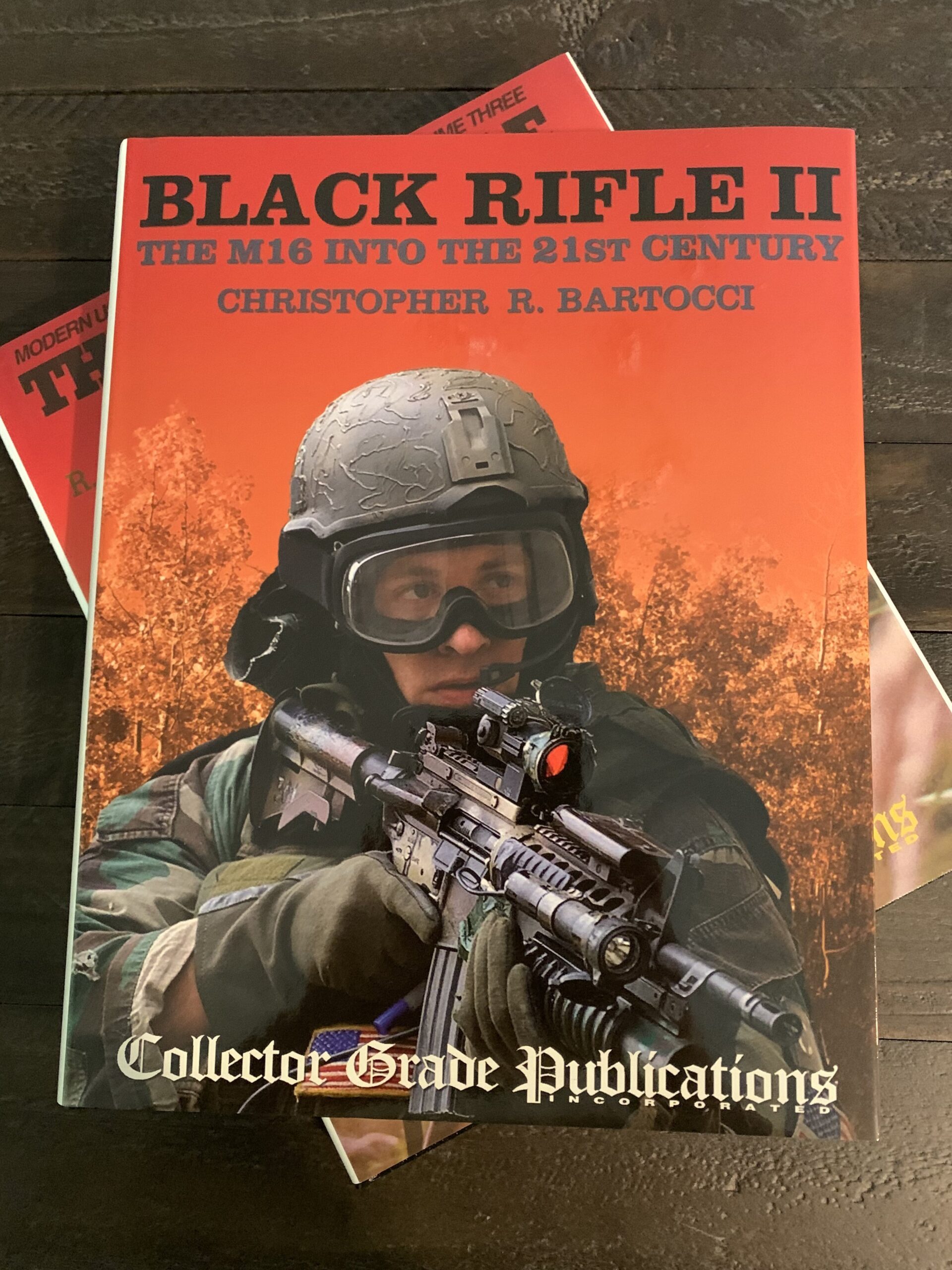“Common knowledge” can be a tricky thing for people who specialize in facts. As a military history writer, it is incumbent on me to ensure the veracity of any claims I make, no matter how seemingly obvious. The problem is, some of the factoids we all take for granted have been repeated over and over again so many times that there’s no good way to establish where they came from and whether they’re even true. In historical research, we consider the highest form of proof to be a primary source—a personal account from someone who witnessed the event in question firsthand. When it comes to the history of the ubiquitous AR platform, few sources rise to the level of completeness and accuracy as 2004’s Black Rifle II: The M16 Into the 21st Century by Christopher R. Bartocci.
As its unassuming name suggests, Black Rifle II was originally billed as a follow-on to The Black Rifle, a 1987 volume on the development and service history of the AR-15/M16 family of weapons. At that time, the iron-sighted M16A2 was one of the most modern combat rifles the world over, but the next decade and a half would produce a slew of developments to the platform that would render the book hopelessly outdated—the M4 carbine didn’t yet exist, nor did the quad-rail handguards we now regard as antiques. World-renowned small arms expert Christopher R. Bartocci stepped in to create a successor volume detailing the more recent history of the AR-15 and AR-10, picking up where the original left off.
Black Rifle II begins by expanding on the later chapters of its predecessor but mostly focuses on work done throughout the 1990s and 2000s; much time is spent explaining the long and arduous process of re-engineering the platform into the M4 carbine and its GWOT-era descendants. Military historians are treated to some of the most accurate and complete information on obscure AR-derived weapons systems ranging from Project ACR to the earliest versions of the SR-25. Collectors and clone builders can look forward to an expanded section on older Colt civilian rifles and a complete list of all Colt AR-15 models through 2004, including many rare designs offered for foreign military and law enforcement contracts. Bartocci succeeded in collecting rare inside perspectives on the myriad AR variants and derivatives directly from the people who worked on each program. Much of the information included in the book is otherwise poorly documented or largely unknown even today, nearly twenty years after its first publication.
Much like its predecessor, however, Black Rifle II has aged to the point that its contents, though accurate, can no longer be considered current. Published just before the Federal Assault Weapons Ban’s 2004 expiration, the book came too early to chronicle the stories of much of the hardware we now take for granted—KeyMod, M-LOK, the DPMS LR-308, adjustable gas blocks, external piston conversion kits, and the Magpul PMAG, just to name a few. The past two decades have given us an explosion of innovation in the civilian AR market that has cross-pollinated research projects on the military side.
At the end of the day, Black Rifle II cannot be relied upon for information on newer developments in the AR-15/AR-10 family but still serves as an extremely valuable resource for deep technical and historical data. Because it came together out of a considerable amount of original research by one of the foremost authorities on all things AR, it is second to none in the completeness and accuracy of its information within its given time frame. I give my enthusiastic recommendation to Black Rifle II for anyone who wants to own the authoritative volume on the behind-the-scenes work that helped bring the AR platform into the 21st Century.
Unfortunately, Collector Grade Publications stopped printing Black Rifle II a few years ago, but Chris Bartocci himself has very recently put his book back into print as America’s Rifle: M16/M4 late Cold War through Global War on Terror. It is currently offered for sale through the website of his company, Small Arms Solutions, for $105.95 including shipping.





Comments